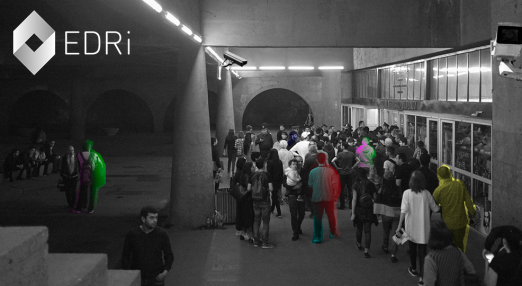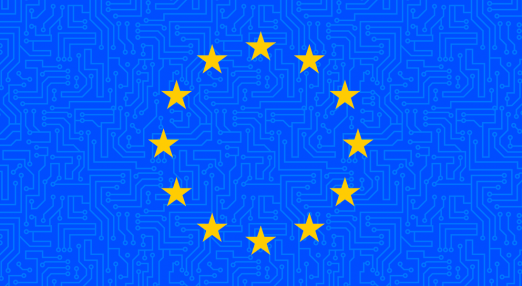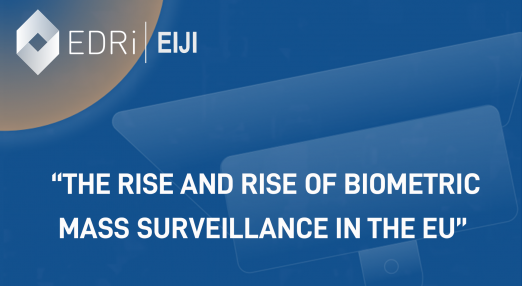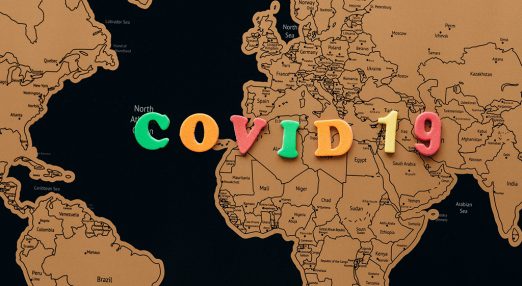Our work
EDRi is the biggest European network defending rights and freedoms online. We work to to challenge private and state actors who abuse their power to control or manipulate the public. We do so by advocating for robust and enforced laws, informing and mobilising people, promoting a healthy and accountable technology market, and building a movement of organisations and individuals committed to digital rights and freedoms in a connected world.
Filter resources
-

EU privacy regulators and Parliament demand AI and biometrics red lines
In their Joint Opinion on the AI Act, the EDPS and EDPB “call for [a] ban on [the] use of AI for automated recognition of human features in publicly accessible spaces, and some other uses of AI that can lead to unfair discrimination”. Taking the strongest stance yet, the Joint Opinion explains that “intrusive forms of AI – especially those who may affect human dignity – are to be seen as prohibited” on fundamental rights grounds.
Read more
-

The Data Governance Act – between undermining the GDPR and building a Data Commons
Compared to the DSA and the DMA, the DGA has received relatively little attention, both from the digital rights community and, seemingly, from industry stakeholders. So far, the discussion in the EP – where the Internal Market ( IMCO), legal affafirs (JURI) and civil liberties (LIBE) committees have issued opinions – has revealed relatively few clear faultlines.
Read more
-

NGO demands disclosure of A1 Telekom Austria Group’s entanglements in Belarus
EDRi's member epicenter.works protested in front of the A1 Telekom Austria Group’s building in June 2021 to raise awareness of the involvement of the partially state-owned company in the internet shutdowns in Belarus that unfolded around the controversial election of the long-term dictator Lukaschenka. The protest was accompanied by attacks by the company against the non-profit NGO.
Read more
-

All hands on deck: What the European Parliament should do about the DSA
After the European Commission’s proposal for a Digital Services Act (DSA) in December 2020, no less than seven committees in the European Parliament are now drafting their reports and opinions on the DSA. In parallel, member states are deliberating about the Council’s position, too. Yet, while the Commission has carefully tried to modernise the ageing rules of the E-Commerce Directive and make them fit for the platform economy, several of the committees’ draft reports propose—deliberately or not—to turn the DSA into a dystopian fundamental rights nightmare.
Read more
-

EDRi-gram, 14 July 2021
Whilst EU laws say that each of us is innocent until proven guilty, the prevalence of biometric mass surveillance practices across Europe flips this on its head. Each of us is treated as suspicious until ‘proven’ innocent, by often discriminatory and persecutory deployments of systems that never should have been rolled out in the first place.
Read more
-

It’s official. Your private communications can (and will) be spied on
On 6 July, the European Parliament adopted in a final vote the derogation to the main piece of EU legislation protecting privacy, the ePrivacy Directive, to allow Big Tech to scan your emails, messages and other online communications.
Read more
-

Biometric mass surveillance flourishes in Germany and the Netherlands
In a new research report, EDRi reveals the shocking extent of biometric mass surveillance practices in Germany, the Netherlands and Poland which are taking over our public spaces like train stations, streets, and shops. The EU and its Member States must act now to set clear legal limits to these practices which create a state of permanent monitoring, profiling and tracking of people.
Read more
-

Booklet: Depths of biometric mass surveillance in Germany, the Netherlands and Poland
In a new research report, EDRi reveals the shocking extent of unlawful biometric mass surveillance practices in Germany, the Netherlands and Poland which are taking over our public spaces like train stations, streets, and shops. The EU and its Member States must act now to set clear legal limits to these practices which create a state of permanent monitoring, profiling and tracking of people.
Read more
-

Joint Civil Society Statement Urges IMCO Committee to Uphold Fundamental Rights in the DSA
On 1 July 2021, along with 6 leading civil society organisations EDRi signed a joint statement urging Members of the Internal Market and Consumer Protection Committee (IMCO) in the European Parliament to uphold fundamental rights and democratic principles in the final Digital Services Act (DSA) regulation.
Read more
-

EDRi-gram, 30 June 2021
Covid 19 brought the often invisible power of tech into sharp focus as it fostered the digitalisation of our lives forcing us to rely more heavily on technology to meet all our needs. In response, EDRi emphasised that measures taken should not lead to discrimination of any form, and governments must remain vigilant to the disproportionate harms that marginalised groups can face.
Read more
-

Fear and loathing in the UK adequacy decision
The Council of the European Union unanimously approved the United Kingdom (UK) draft adequacy decision. In an ideal world, this would indicate that the UK offers an adequate level of protection for personal data, and would signal their willingness to retain those standards. Unfortunately, reality tells a different story, that should be worrying for human rights advocates on both sides of the channel.
Read more
-

Five reasons to claim victory on the EU Digital COVID Certificate
On 8 June 2021, the European Parliament voted on the interinstitutional compromise text on the regulation(s) on the EU Digital COVID Certificate (EU DCC, also known as the Digital Green Certificate and the European Green Pass). The proposed legislation regulates the “framework for the issuance, verification and acceptance of interoperable certificates on vaccination, testing and recovery” with aim of facilitating free movement during the COVID-19 pandemic.
Read more
